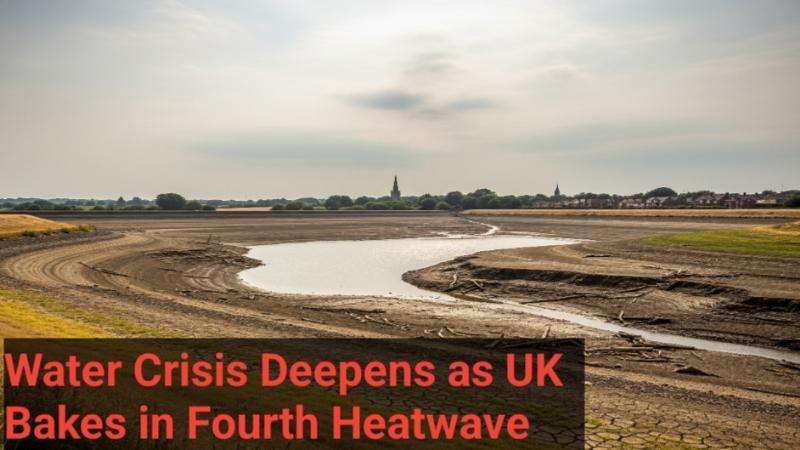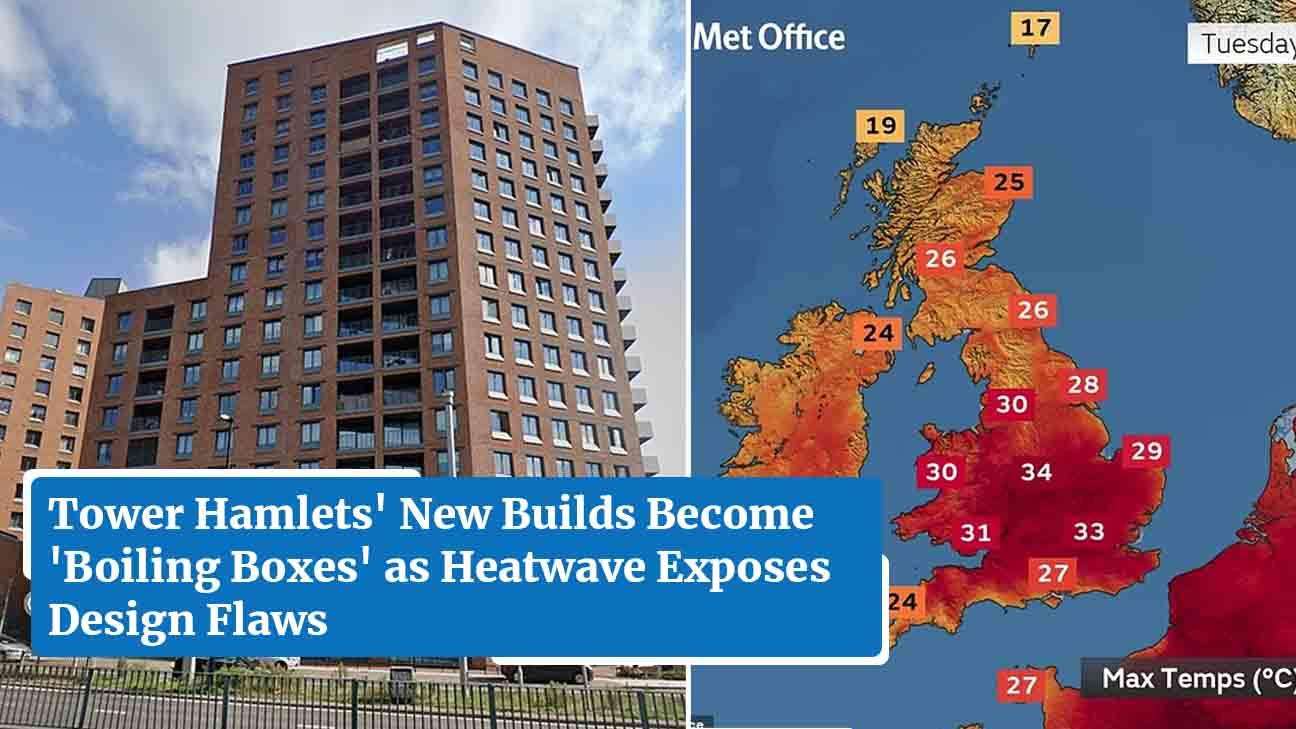The UK is grappling with a severe and escalating drought, with hot and dry conditions returning this month. The fourth heatwave of the year is putting immense pressure on already struggling public water supplies and navigational waterways. The situation has been declared a "nationally significant incident," with five areas of England officially in drought and six more experiencing prolonged dry weather. This follows the driest six-month period since 1976, Daily Dazzling Dawn understands.
Many river flows and water reservoir levels continue to recede, despite some storms in July. Reservoirs, on average, are at just 67.7% capacity, significantly lower than the 80.5% average for the first week of August. Some reservoirs, such as Blithfield, Derwent Valley, and Chew Valley Lake, are critically low, with levels below 50%. The rainfall in July, which was 89% of the long-term average, was the sixth consecutive month of below-average rainfall.
This current heatwave has triggered an amber heat health alert for a large part of the country, including the East Midlands, West Midlands, East of England, London, and the South East. Temperatures are forecast to exceed 30°C and could even surpass the year’s record of 35.8°C. A milder yellow heat health alert is in place for the South West, North East, North West, Yorkshire, and The Humber.
The deepening water shortage is impacting multiple sectors. Farmers are reporting a significant drop in crop yields, which is financially devastating and could affect the UK's overall harvest. The National Farmers Union (NFU) is calling for urgent investment in water infrastructure to secure supplies for food production. The low water levels also impact the health of waterways, reducing oxygen levels and leading to fish deaths and increased algae growth. The dry conditions have also led to warnings of wildfires, with recent blazes near Wimborne in Dorset and at Edinburgh's Arthur's Seat.
Water companies are responding to the crisis. Hosepipe bans are in effect for customers of Yorkshire Water, and postcode-specific bans have been introduced by Thames, South East, and Southern Water. The National Drought Group, which includes government and water companies, is working to highlight water-saving measures. The public has been praised for their efforts, with one company reporting a 10% reduction in domestic water demand following a ban.
Water minister Emma Hardy stated that the government is "urgently stepping up its response" with investment in new reservoirs and is holding water companies accountable to their drought plans. The minister warned of a "growing water shortage in the next decade." The UK Health Security Agency (UKHSA) has issued tips for staying cool, such as closing windows and curtains, seeking shade, and staying out of the sun during the hottest times of the day.
_8.jpg)
_5.jpg)
_8.jpg)





.svg)



